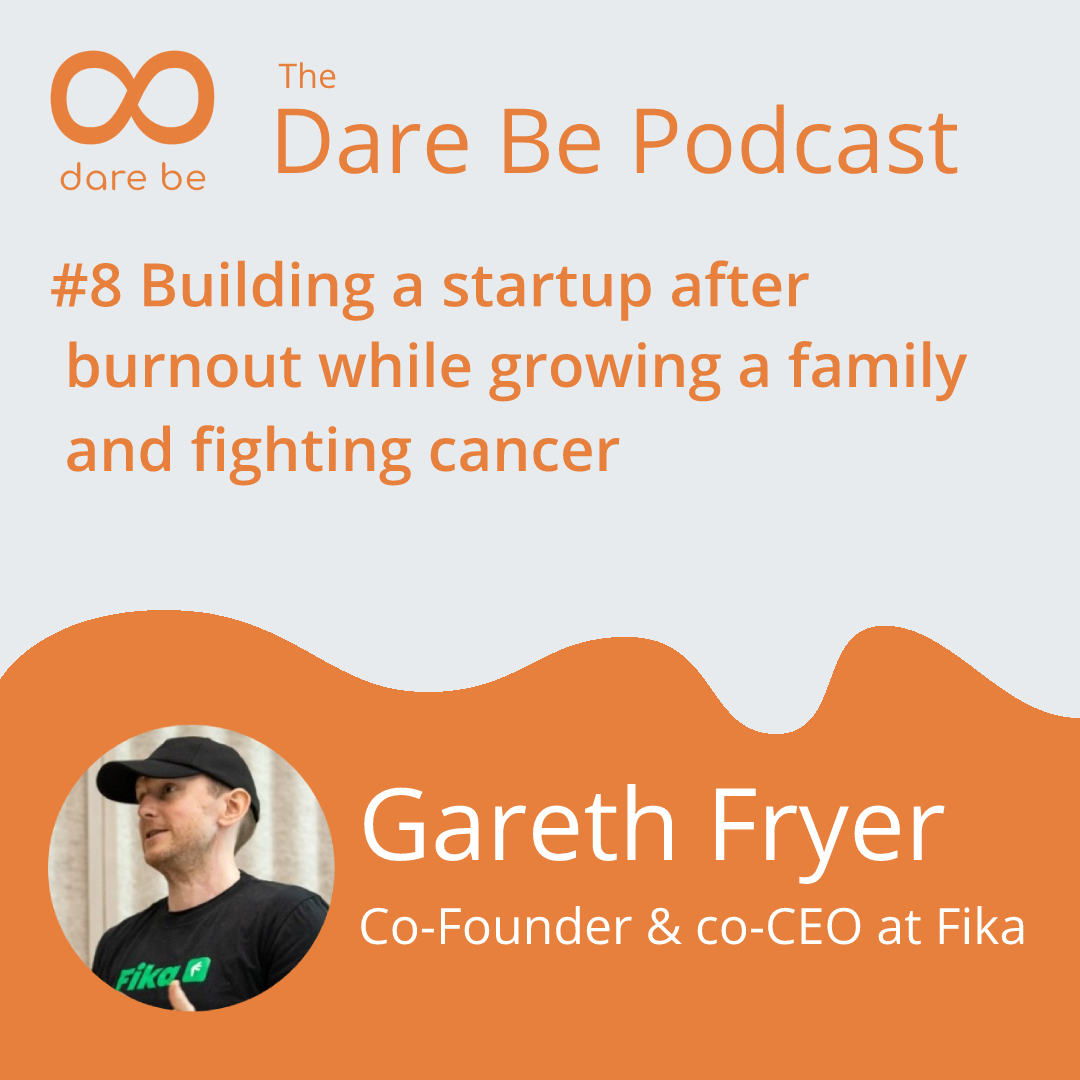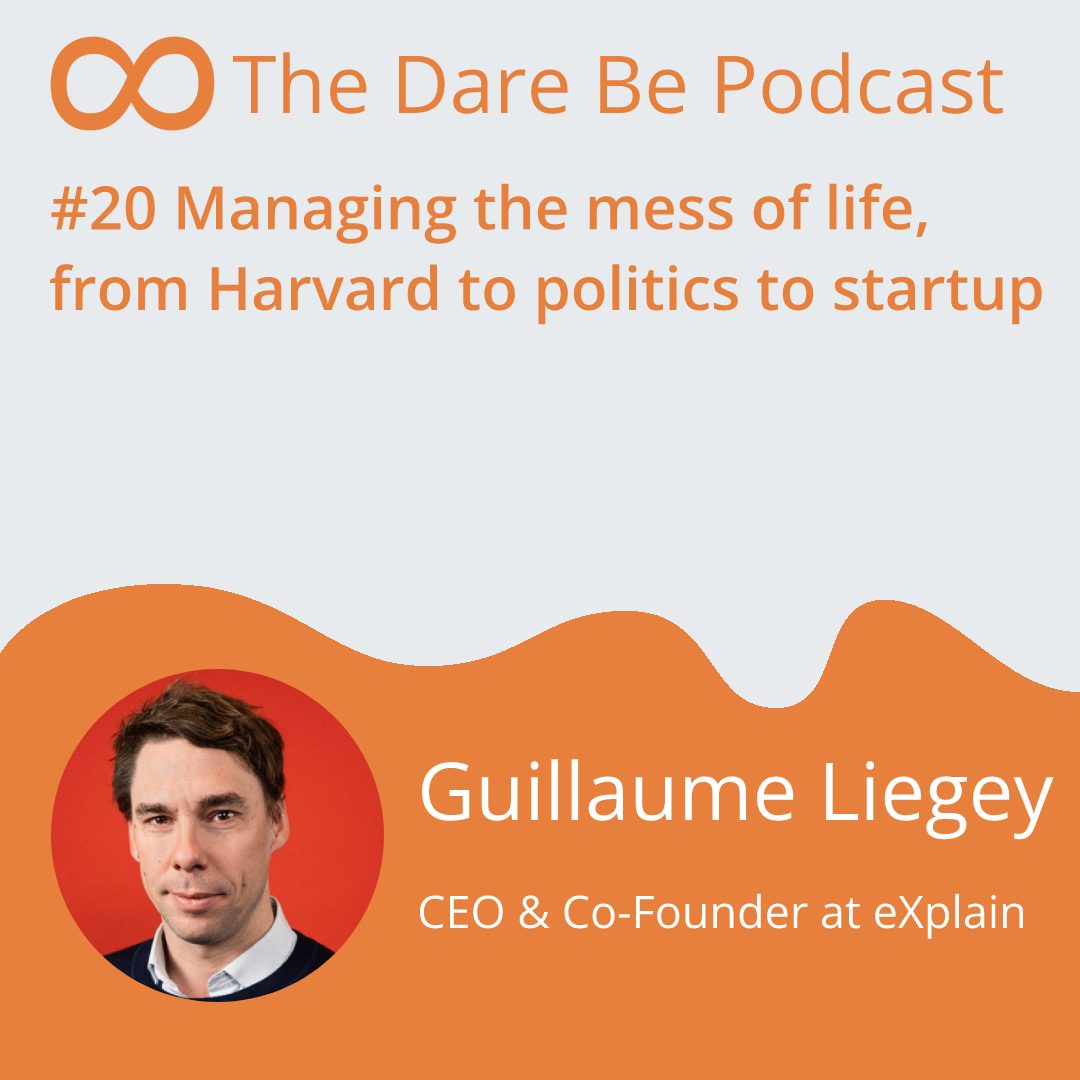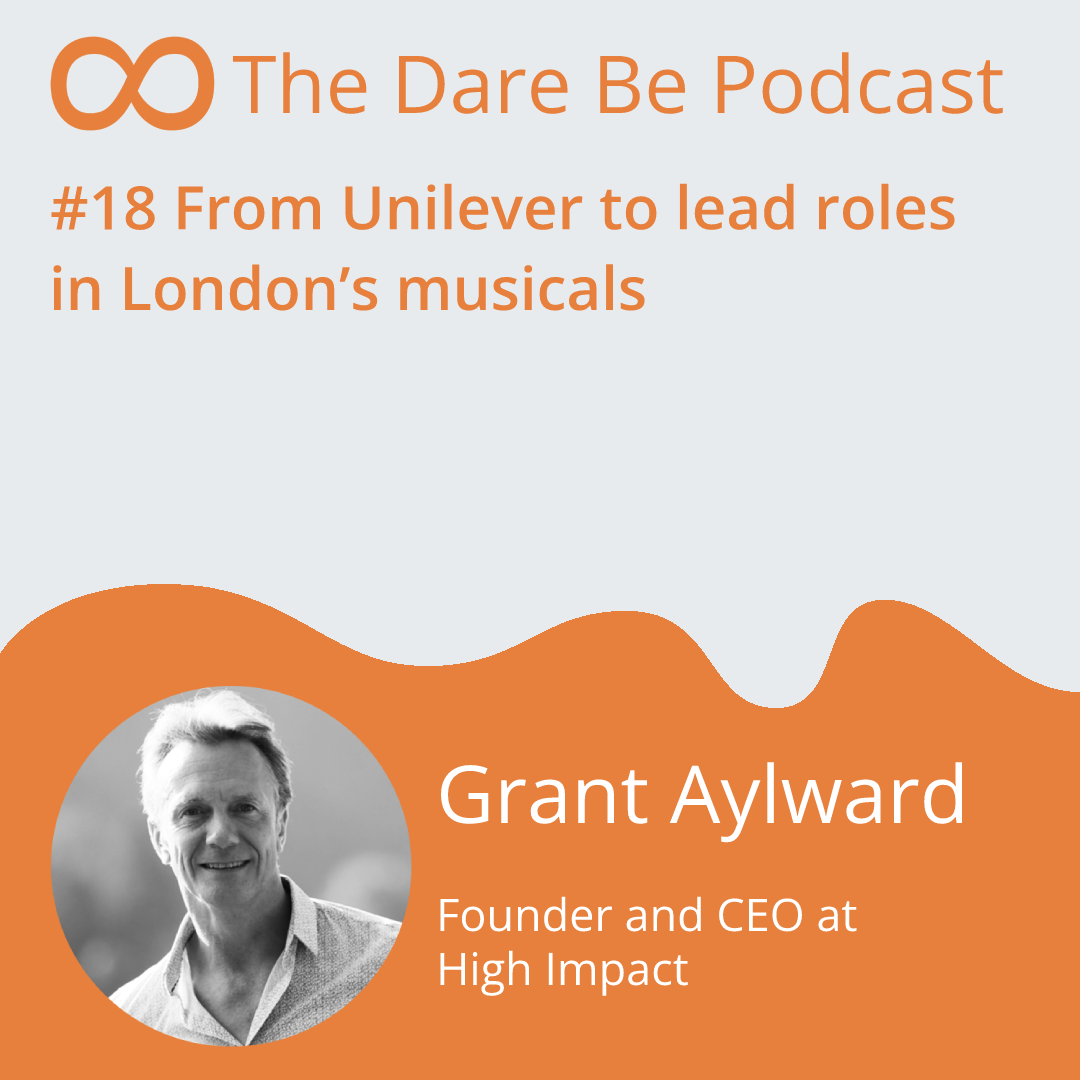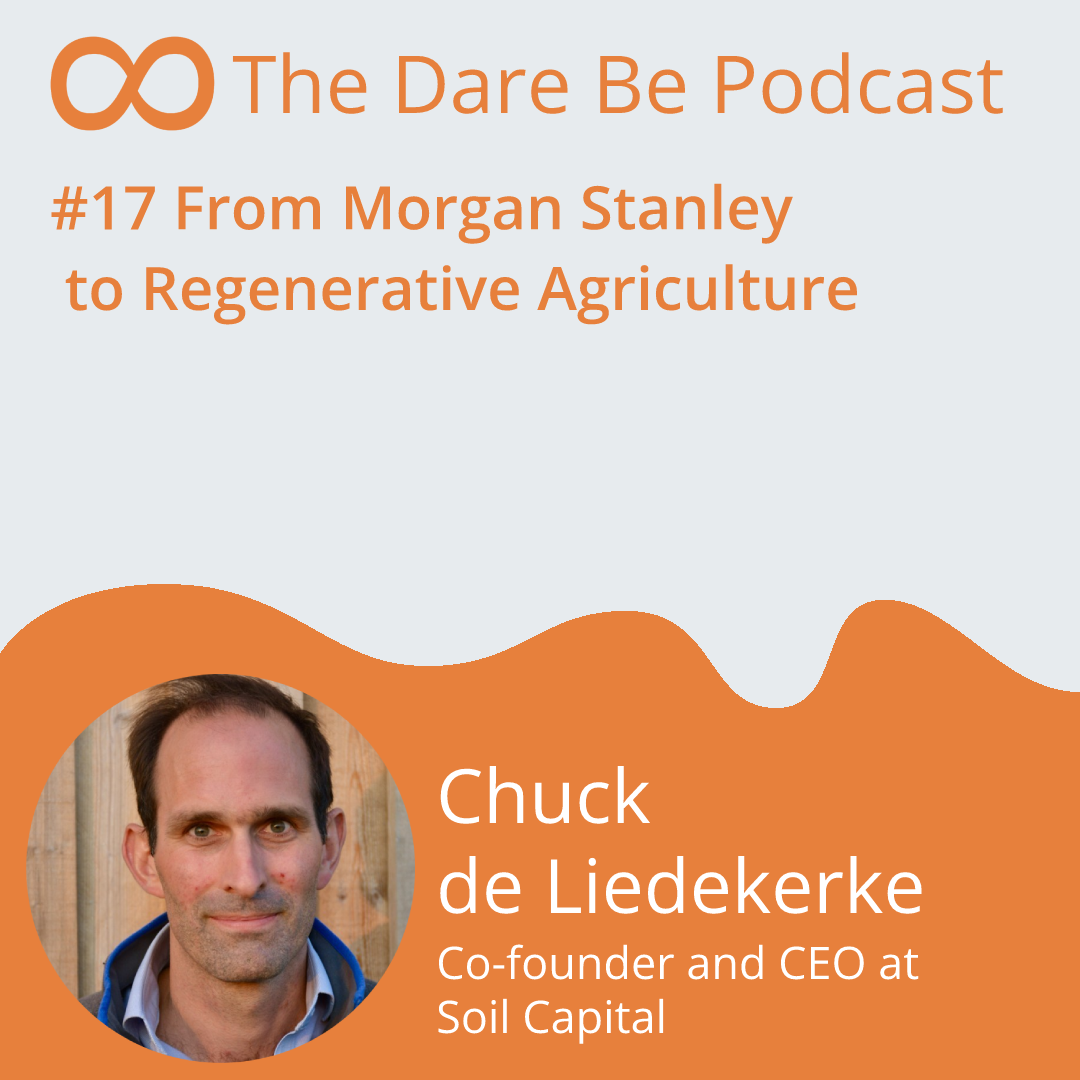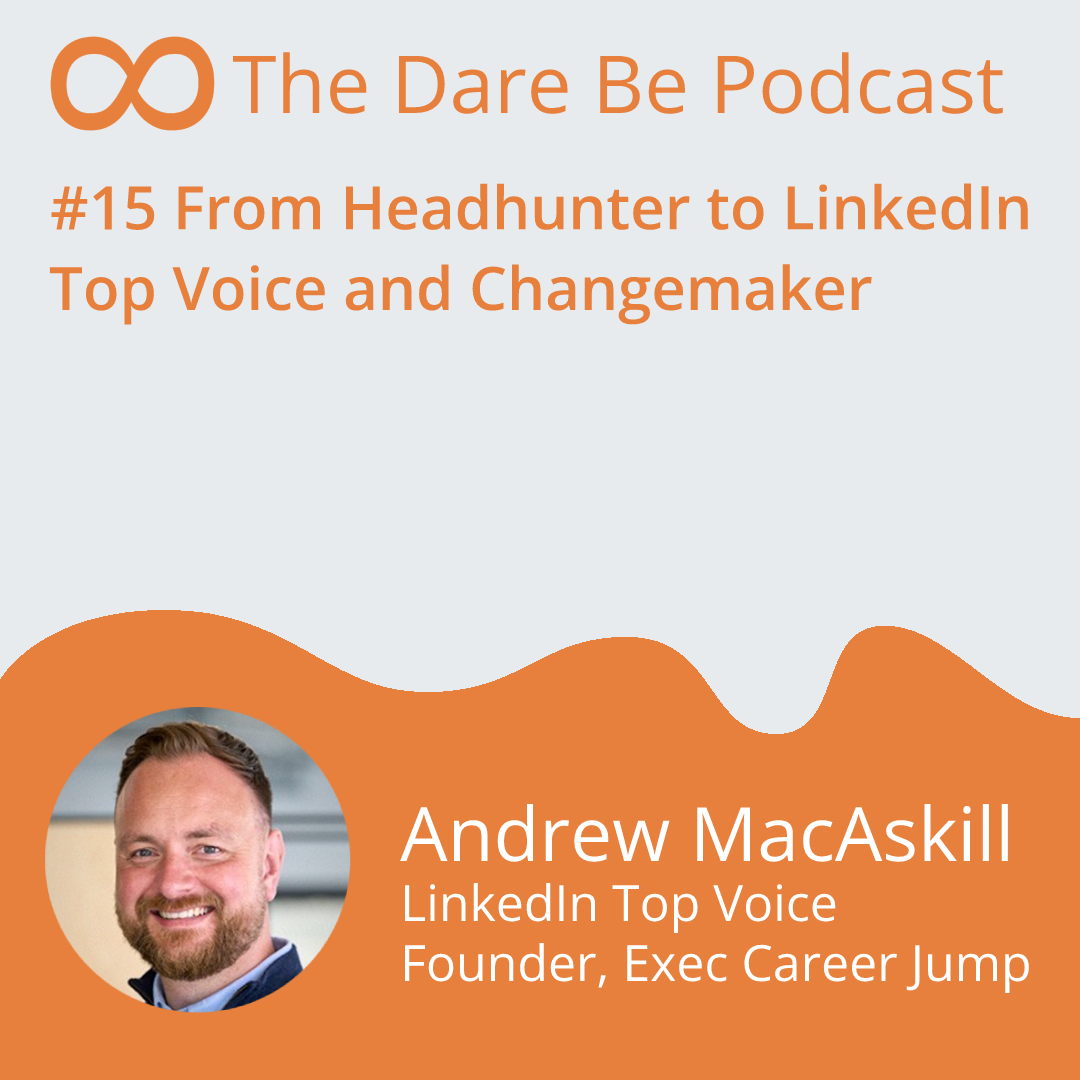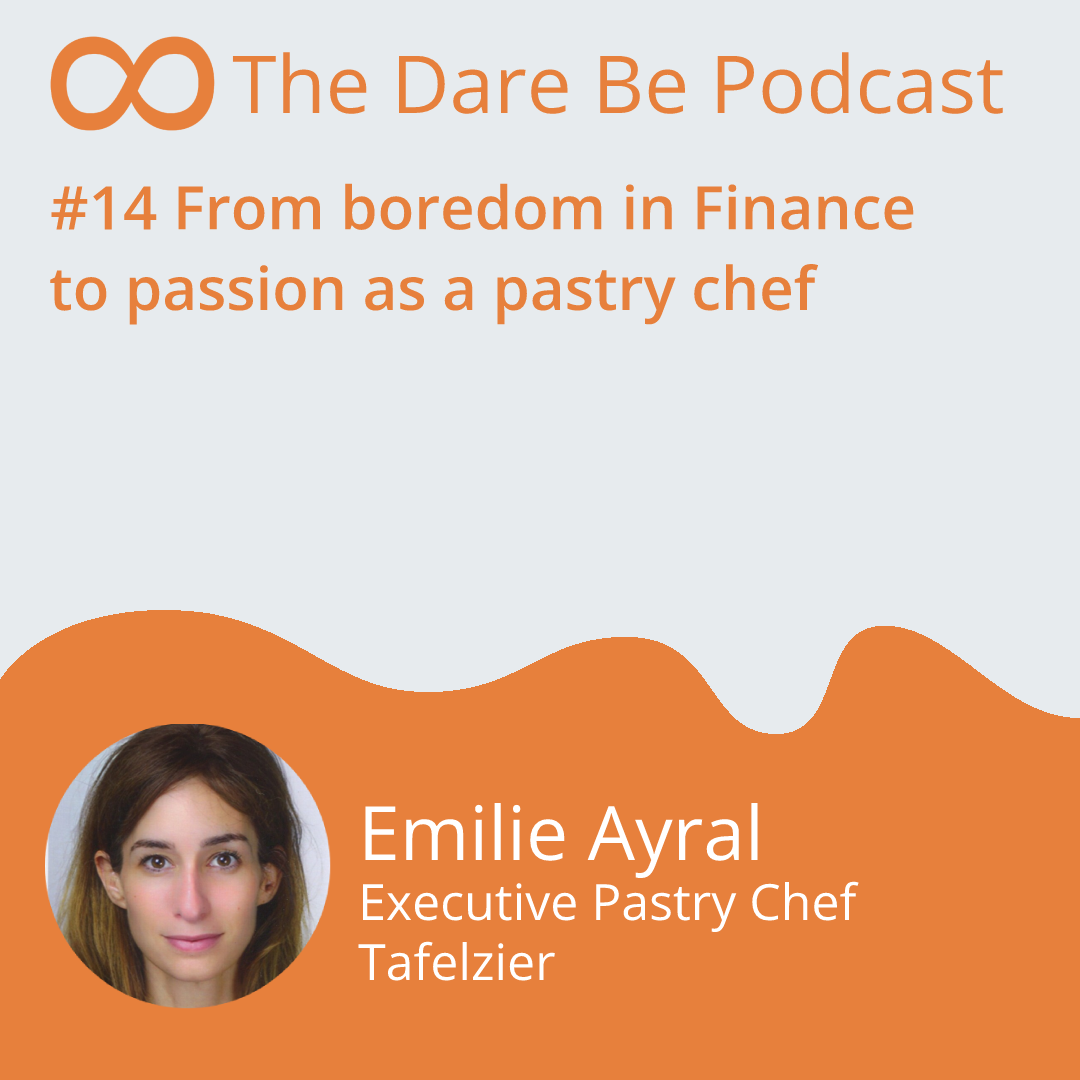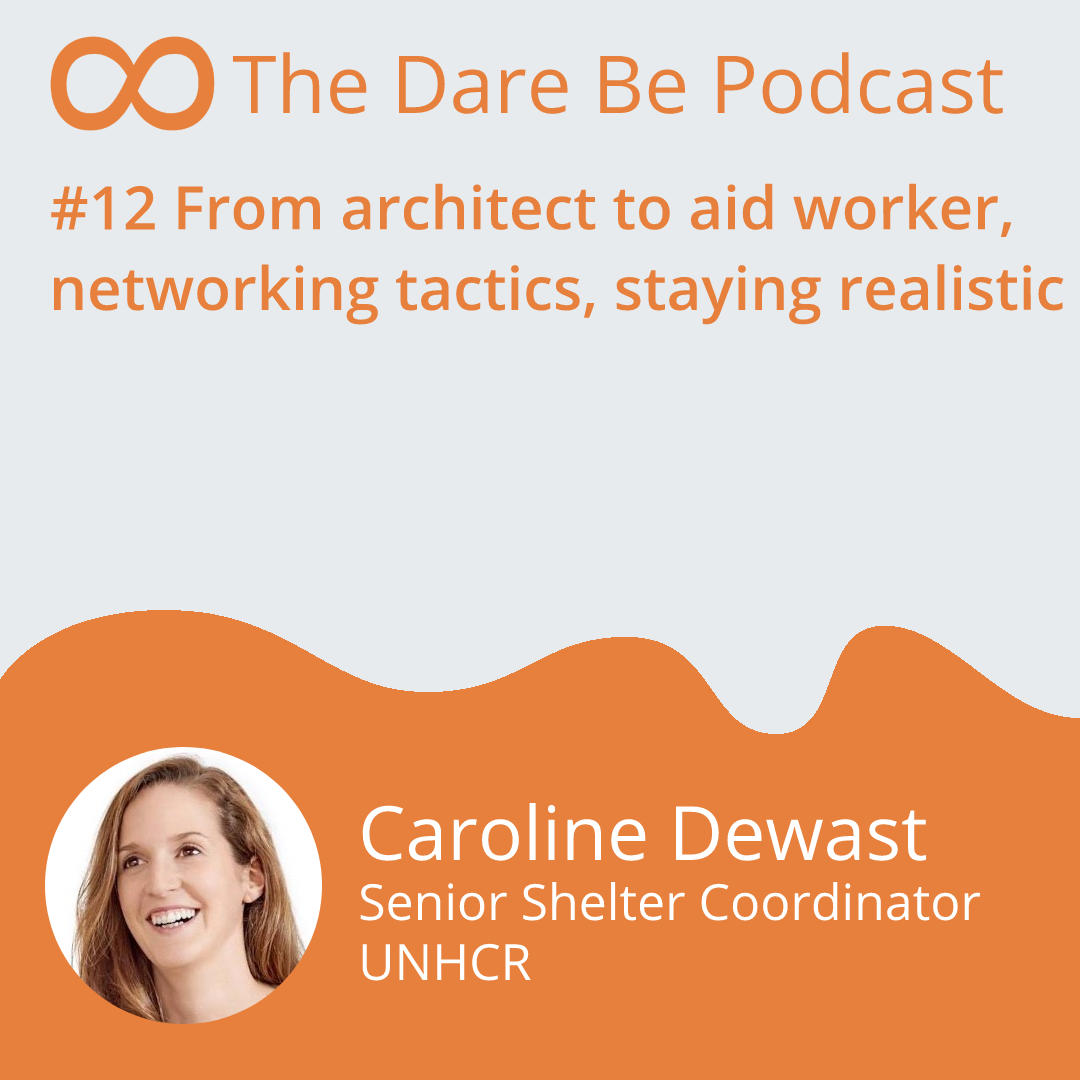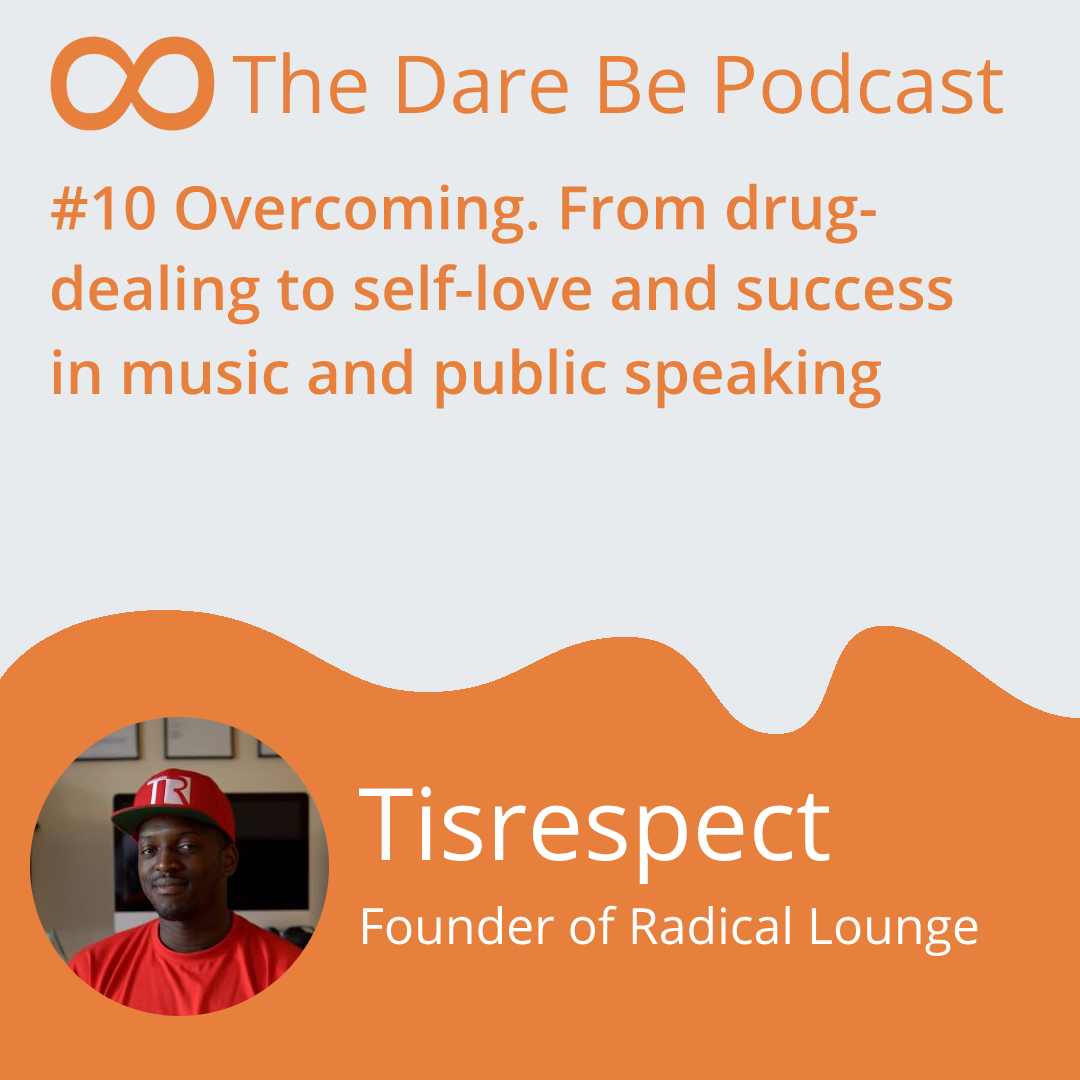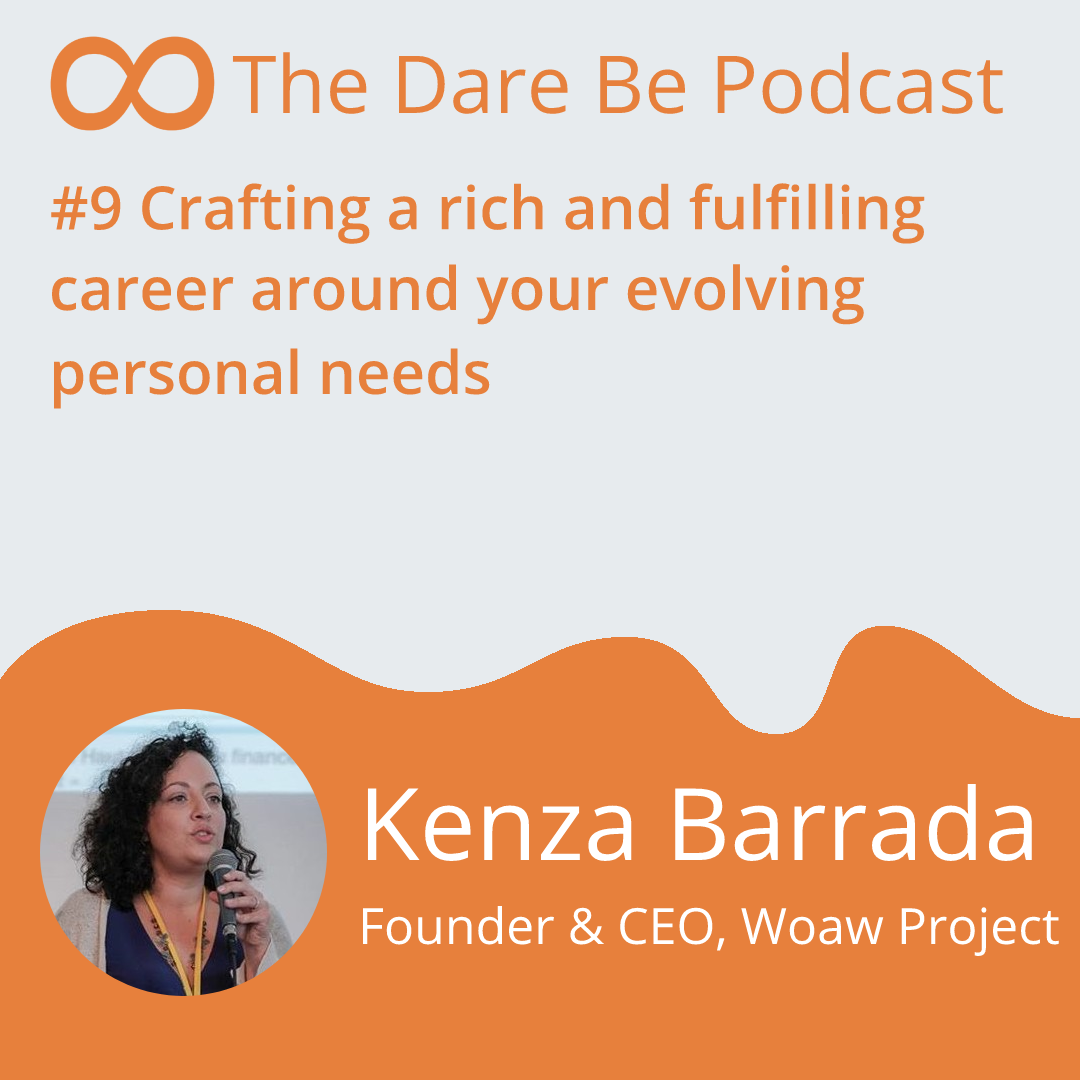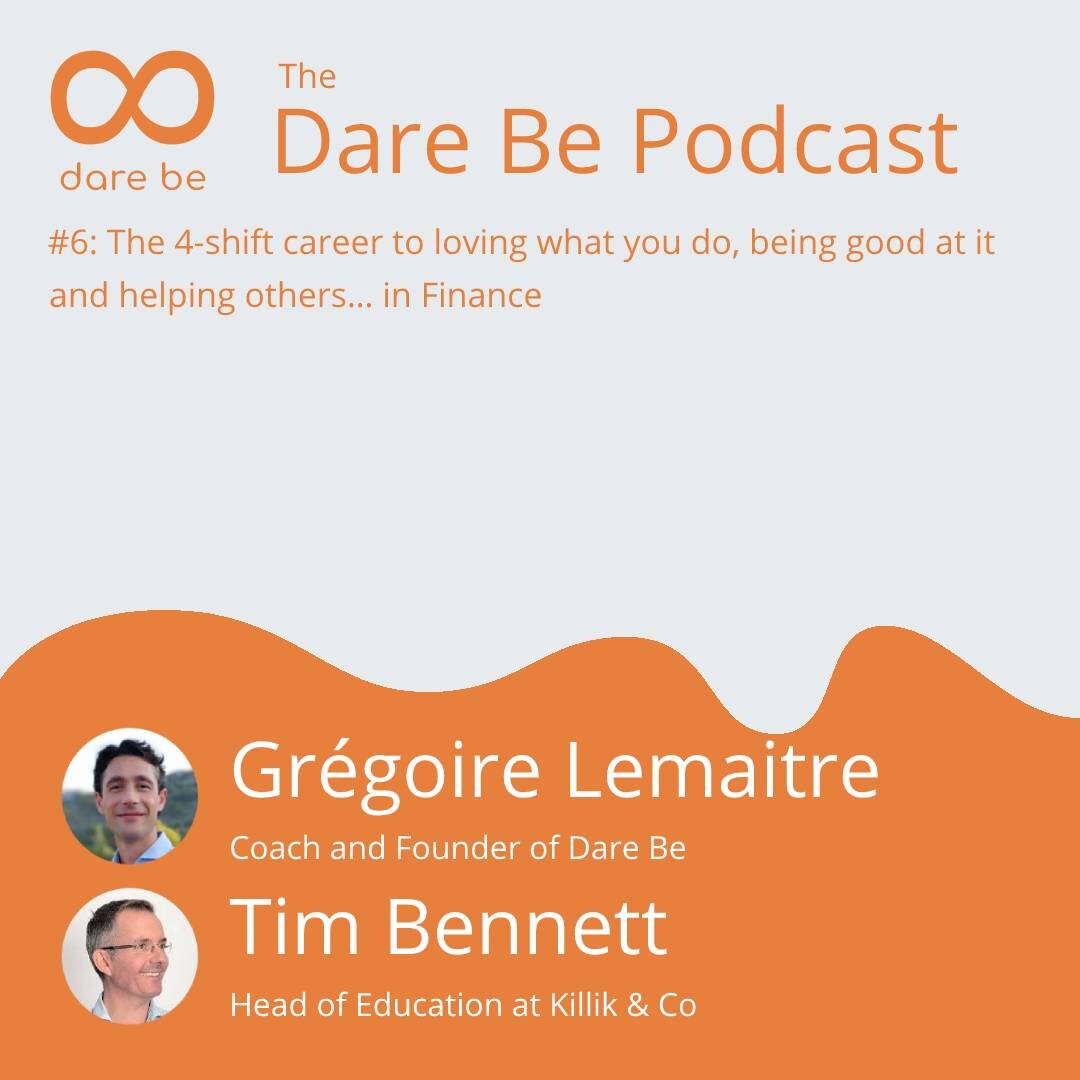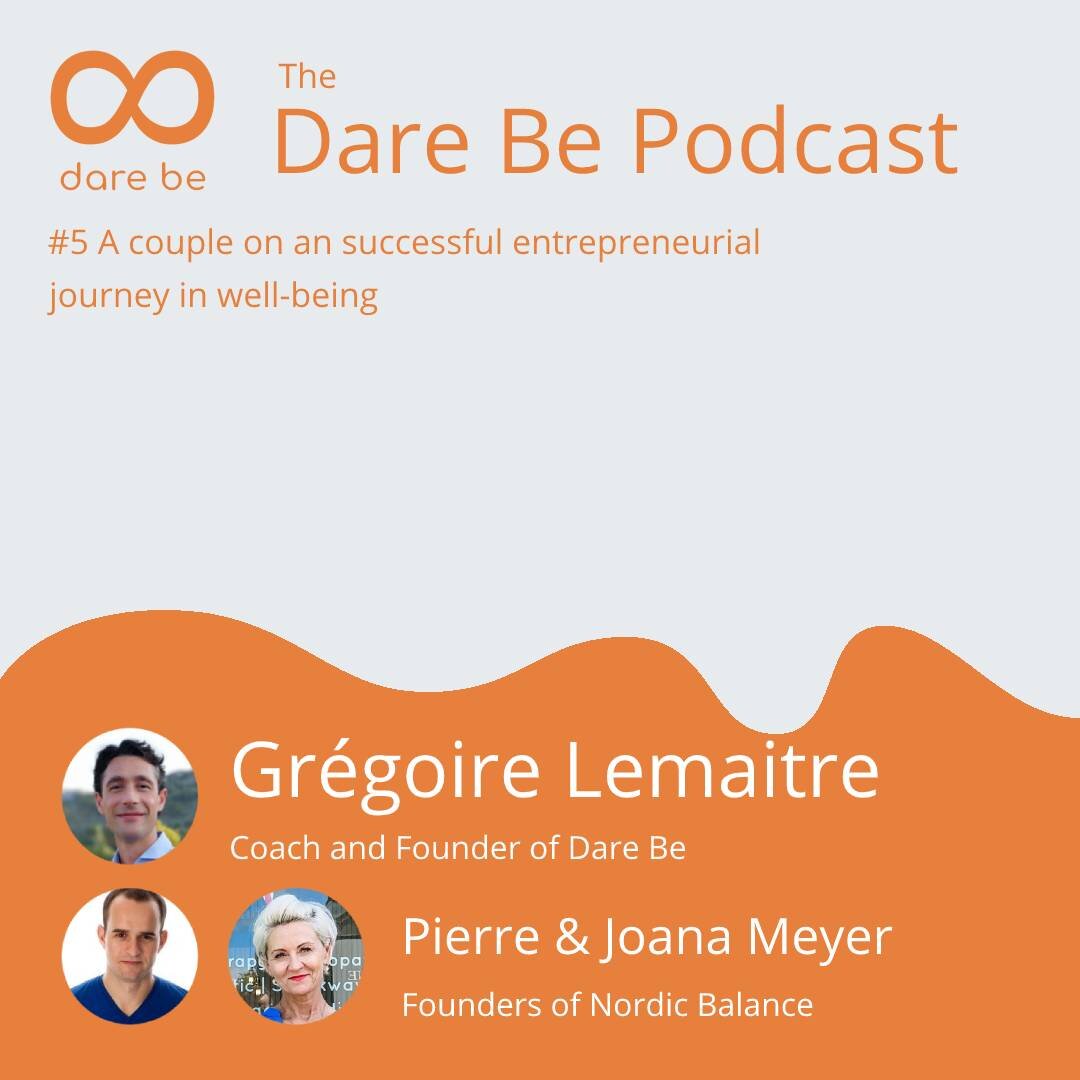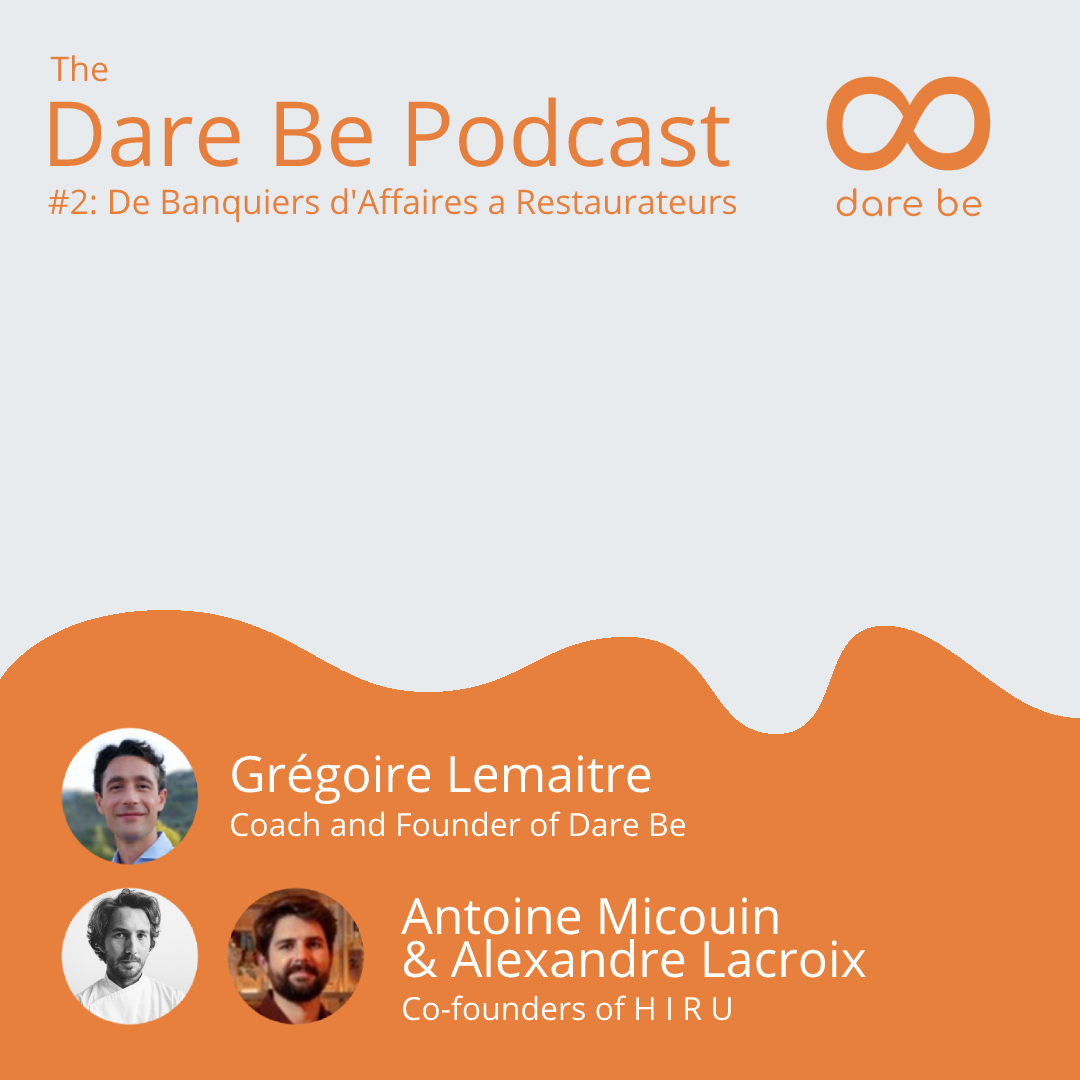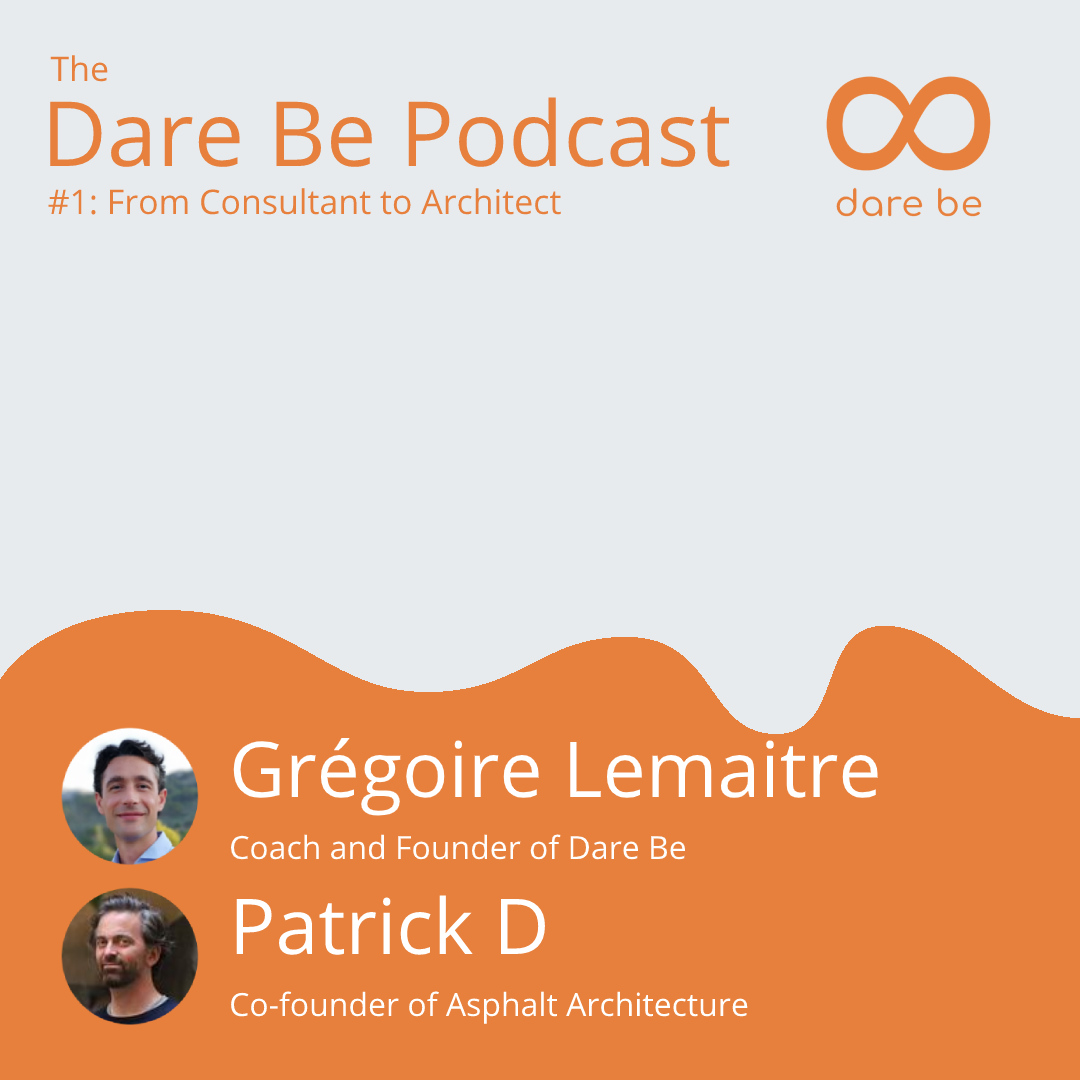#8 Building a startup after burnout while growing a family and fighting cancer
Description
Lessons on managing stress and anxiety in high-pressure jobs, illnesses and transitions; on how to go after what you really want, not away from what you don’t want; on how to back yourself to make a successful transition; and much more!
Greg talks to Gareth Fryer, the co-Founder and co-CEO of Fika, the up-and-coming mental fitness app and start-up.
Gareth’ burn-out led him to quit his job as a partner in a consultancy and give up an earn-out. He learnt to manage stress and anxiety by building emotional literacy. He followed his purpose by building a startup that focuses on solving the root-causes of mental health issues. While growing a family and his young startup, he fought back stage 3C Melanoma cancer.
Key Learnings
How to manage the stress of cancer, high-pressure jobs and transitions before it manages you
“The inevitable challenges of life happened to me through my career and struggling with anxiety and fear, making myself feel all the time like, "why are you stressed? Why are you anxious? You're under so much pressure, but just don't be stressed, just don't be anxious!" And taking on more and more as we built the company and getting to the point where I just had to walk away from it all, to be honest, I didn't recognize it as burnout at the time. I just knew I was done and I had to leave and do something else. I was just at a point where I felt like I just didn't want to do that anymore. Irrespective of the financial benefit or the great things we were doing as a team. It just got to a point for me where my own state of my mental well-being was something that I'd never really paid attention to. As a typical bloke, I'd always just been, oh, I'm fine. Feeling anxious and stress wasn't the problem. It was not being able to understand how to classify those emotions and not having the right toolkit to manage them and being a bit illiterate in my own understanding of mental fitness to be honest. That led me to need to leave and seek different avenues and do something more meaningful.”
“The stress comes from how you take those challenges and then are able to either prioritize them or put them into opportunities. And for me, it obviously sounds really easy to say now, but that's been a long period of reflection and to recognize that.”
“"Fear is a waste of a perfectly good imagination." You could put the fear on what if it doesn't work, the reality is, I backed myself. If it didn't work, I'd do something else. So much that you train your mind to not focus on that output and put your energies instead into “How are we going to make it work?”
“My job was literally thinking about what could happen, what might happen from what could go wrong. What if with multiple spinning plates? How do they all connect? So I always felt really anxious because I always saw all of the things that could be done and all of the things that could happen, what I now know. And what I've learned is that anxiety is nothing bad. That anxiety was, I was manifesting it badly, but anxiety is part of your limbic nervous system. It's how you think about consequences and plan for the future. So actually I've recognized that perceived weakness has a direct line to what actually is one of my biggest strengths. I'm no more or less anxious. The framing of it, the volume of it is completely turned down because it doesn't, it isn't a negative emotion for me anymore. It's an acceptance of, an emotion that I've flipped into a positive because it is a key driver that helps me do what I do, but that's the journey that, the Fika journey that I've been on. And it sounds again, easy to say now, but it's been five years from the point of leaving to now to really go on that emotional journey to learn these things for myself.”
Greg: ”What advice would you give to people who want to make a change, but are afraid of making the steps to change?” Gareth: “When we're facing any period of challenge or transition, we feel anxious. We're supposed to, it's an evolutionary response, thinking about the consequences of what might happen, that's normal. And that's actually nothing bad. Worrying about what might happen is a completely normal evolutionary response. It doesn't mean anyone is ill. It just means we're planning for what might happen. We feel a bit stressed because that's our performance mechanism kicking in, helping us get ready to face the challenge. And it's that difference between positive and negative stress, and chronic and acute anxiety. And actually when we are in a state of positive stress, it's as if we have the tools and resources to overcome or to do the things that we think are facing us. And that's positive stress, it's the motivator. And one of the best ways to focus on those positive stress is by looking back on previous situations. So we, we typically we are tuned to focus on the negative, to think about the worst that could possibly happen. That's our brains. And actually most of the time, things turn out better than we expect. That's what the science shows us. So we are tuned to be negative, even though generally things turn out better than we expect them to generally. In those periods of transition, you cannot predict what's going to happen. It's physically impossible, or you can do is look at the things that. Where have you experienced this situation or similar situations before? Where have you faced at the unknown? Where, how, and actually, how did you react in those situations? Because the chances are, that's how you'll react again.”
“We all think we have to be confident before we do. The science is the exact opposite. You only get confident as a result of going through those transition periods and the more you do it, the more your self efficacy builds, the more confident you feel, and the more then you push on from that. But so this whole thing of confidence before action. Is not the way that we work. We have to go through the challenge. We do the challenge, and then we feel more confident. So drawing back on previous experiences where you've gone through those challenges probably ended up better than you expected, because most of the time they do and use that as your motivator to go through those challenges.”
Greg: “transforming stress from an inhibitor to a motivator. How do you do this?” Gareth: “I'm not a psychologist. We work with psychologists and our platform is the place where you get this training. I think part of it is a it's about awareness of what stress is and where stress comes from and how we are so attuned in our society that we are told so regularly that stress is bad and it can be as simple as, starting to think that actually, if you're understand what stress is: your mind trying to get you ready to perform effectively. That's what stress is. So if you then think about that, it is energy. It is momentum and energy that your mind is creating to point you in a direction to perform. You can point that stress any way you like. And the other thing that is the was one of the key drivers for me, again, I'm not the scientist. So I, I tend to use quite simple frameworks because I'm a simple person. But my biggest problem was I used to feel like all of these things were like blaming the things for happening to me. So I'm stressed because I've got too much work. I'm stressed because these people said something at X point, which did Y which may, there's just so much in it. I'm stressed because of all of these things that are happening. Yet if you compare that to the physical space, we tune our feelings of poor fitness onto ourselves. We don't blame the Mars bar for as eating it. We blame ourselves for eating the Mars bar. Yet in the physical space, we blame the external driver for impacting our stress. Both of those things are our own responses to external stimuli. So when it comes to stress it's, the, these factors are happening. Your body has become aware of them. Your mind is thinking and getting you ready, anxiety kicking in thinking of all the consequences, stress is there to help you like attack them. It takes work. And there are exercises and practices that you can do to just work on channeling that stress. Really simple tasks like don't do lists. Like we're always so focused on our to-do list. Here's the list of all the things, million things I've got to do. And my God, the list is getting longer and longer and longer. Really simple flip on that is just focused on the things you're not going to do, because if you really focus your mind on the things I'm not going to do, you can then start to clear some of that prioritization and workload. And none of these things are complicated. Solution-focused therapy, acceptance and commitment therapy, sports psychology, positive psychology, they're all rooted in generally basic or simple constructs that if we practice those constructs regularly, we have positive outcomes. The problem is we assume it's time to expect quick fixes it's like saying I'm going to go to the gym once and lose three stone. Then we're like, mental fitness is as hard as physical fitness. You have to work on it all the time. So yeah, I think the answer to your question is there reason to quick way to do that. It is a way of framing your mindset over a period of time and continual reinforcement and continual reflection to remind yourself because we're also fighting nature. We have to remember, w

